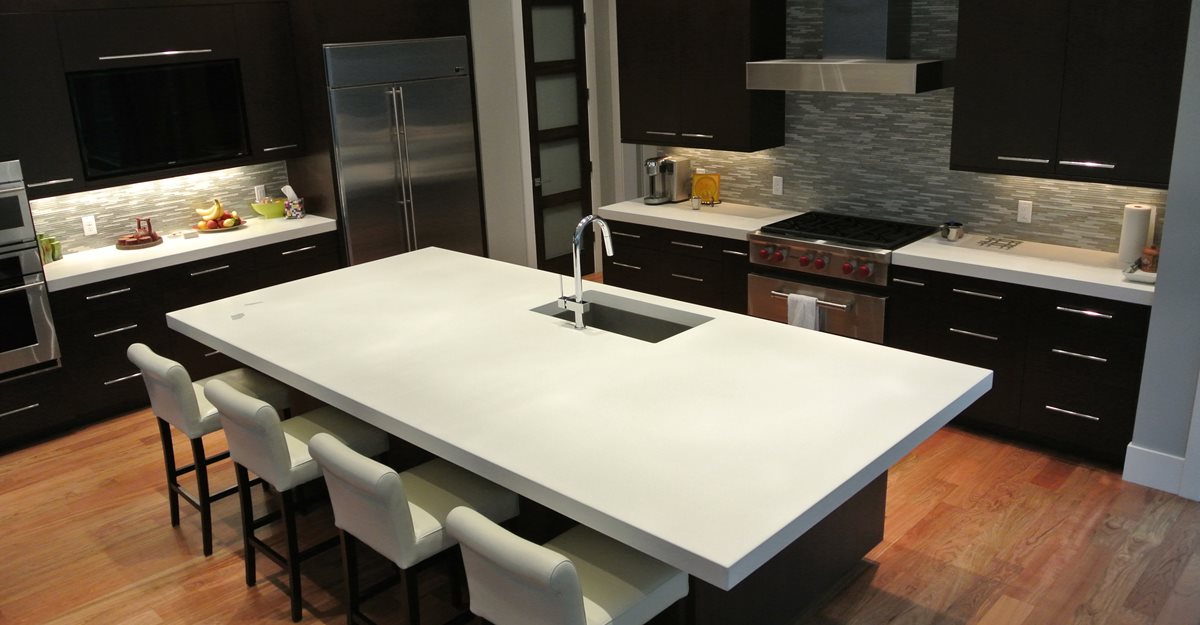Quartz is the most popular choice in countertops today because of its easy maintenance and seemingly unending array of looks, from sleek and modern to options that mimic the appearance of exotic stone and classic marble.
Pros: It won't stain, so go ahead and drink that red wine. Let your kids have at it with the markers and paint. Go crazy and chop those veggies right on the surface since it's pretty hard to scratch. Quartz also requires no sealing, unlike granite and other countertop materials.

Granite
While granite has been replaced by quartz as the countertop of choice today, it remains a popular option for homeowners.
Pros: The natural stone comes in a variety of colors and styles, and individual patterns and markings give each slab a unique look. "Granite has a rich beauty that few other countertop materials can match," said

Angie's List
Marble
It's gorgeous, it's classic, and it's showcased all over TV in high-end, remodeled kitchens. But marble has a downside that makes it hard to love for many people: the care involved.
Pros: "Is there anything that looks and feels more glamorous than a marble countertop?," asks
Stainless Steel
Stainless steel countertops are most commonly found in commercial kitchens but have become more popular as home kitchens have transformed into chef-worthy spaces.
Pros: "Professional chefs love stainless steel because it's non-staining, heat-resistant and easy to clean,"

Concrete
Concrete countertops have gained in popularity over the past few years as industrial looks have become more trendy, and are also a favorite of HGTV personality Joanna Gaines, one of today's most influential tastemakers.
Pros: Because concrete is poured and not quarried, it can look like almost anything you want, with custom shapes, sizes, and colors. It's also durable, "and both scratch and heat resistant," said Angie's List. "Because each countertop is individually handmade, there are endless ways to customize them."

Concrete Network
Another consideration for people looking to use concrete on their counters is how, or rather, where, it is poured. "Concrete countertops that are poured in place (not precast) may develop a hairline crack," said Angie's List. "The cracks aren't necessarily the result of poor workmanship, rather perhaps a new house settling or tension caused by a faucet screwed in too tightly. Hairline cracks can be tricky to fix - ironically the larger the crack, the easier it is to fill and repair - so you might chalk up any such flaw to being a part of concrete's natural patina."
Written by Jaymi Naciri
Nancy M. Alexander - Stone Harbor and Avalon NJ Real Estate NancyAlexander.com


